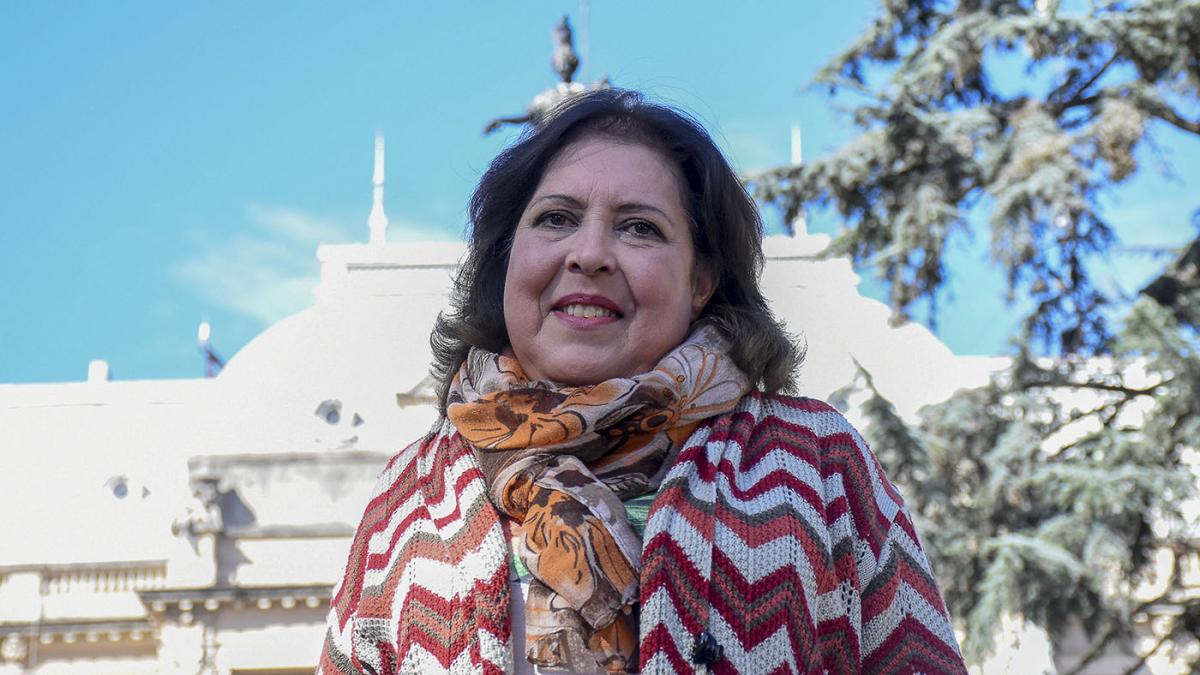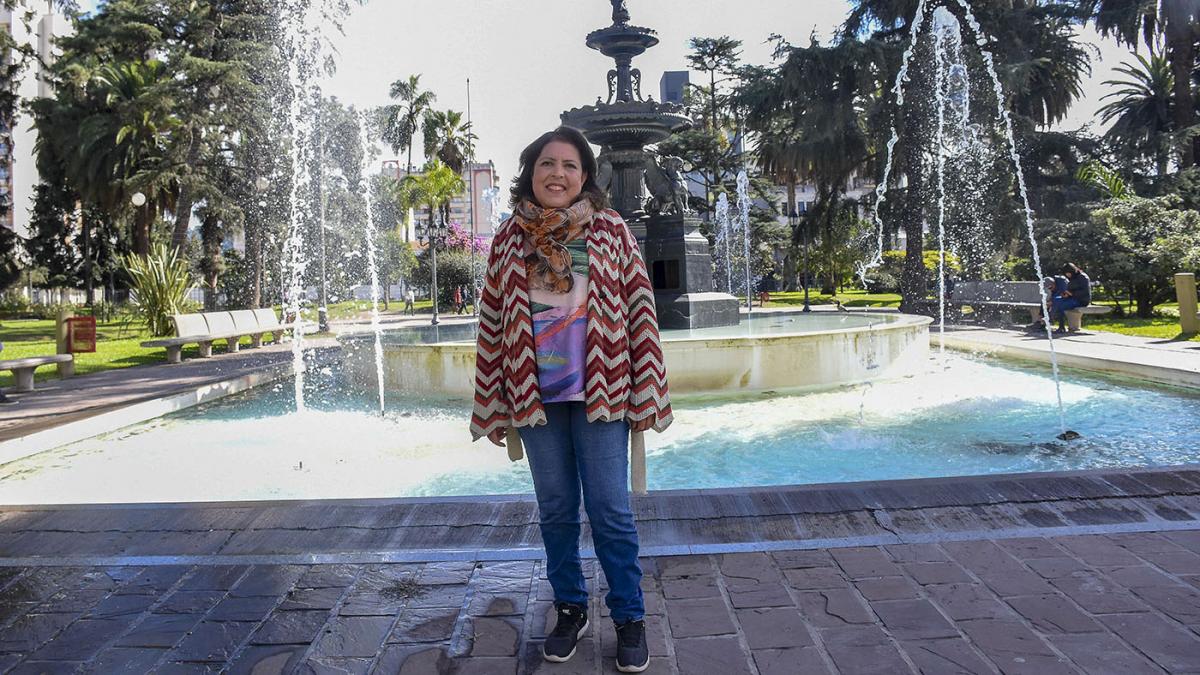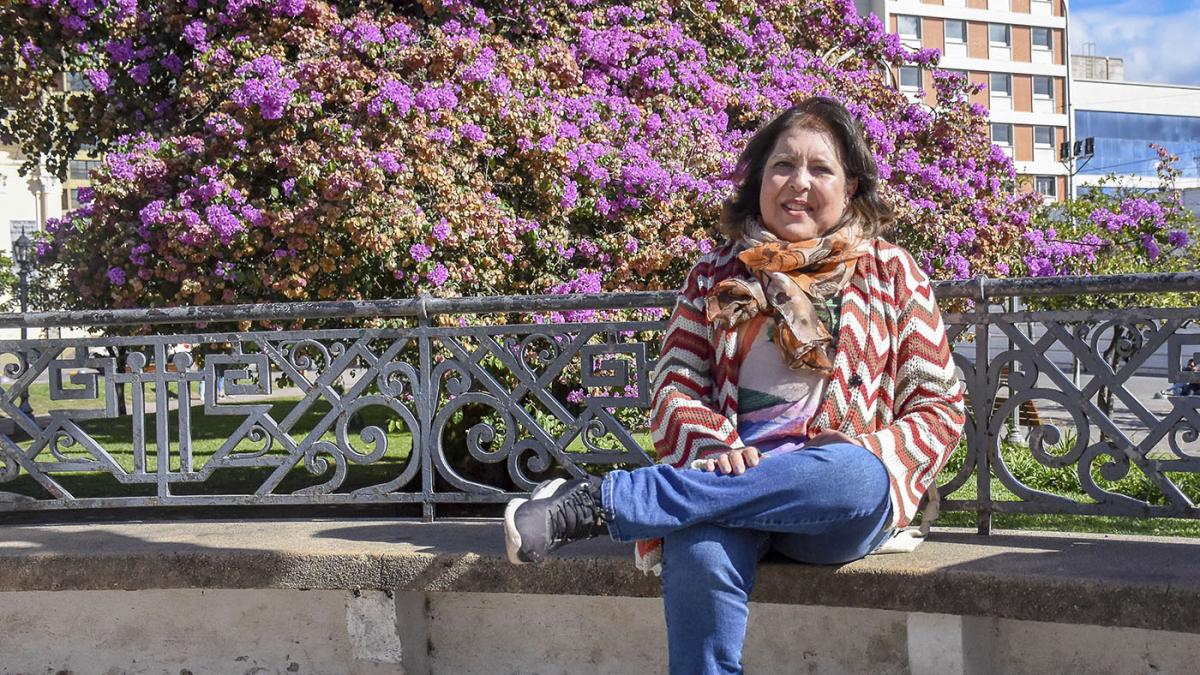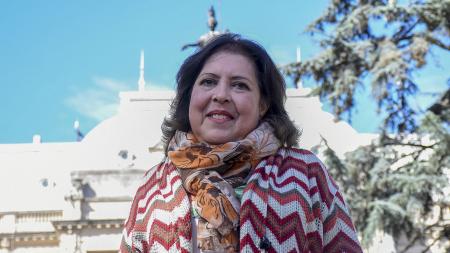 Photo: Edgardo Valera.
Photo: Edgardo Valera.
“Several people in my family had cancer, but of other types. But I only found out about it now because it was taboo; it seems my grandmother and grandfather died of cancer, but it was a family secret and still today nobody wants to talk about it. My My aunt had stomach cancer and my mother’s breast detected it thanks to a routine check-up, super on time,” Fabiana Gimena Pérez (50), who was diagnosed with ovarian cancer in 2017, told Télam.
Fabiana – who lives in San Salvador de Jujuy and is the mother of two children (Thiago, 17, and Augusto, 14) – recalls that she did not feel well that year: “I felt strange, so I went to the gynecologist who did a series of tests on me. that did not go well at all. He immediately referred me to a surgeon and they operated on me immediately,” he describes.
And he continues: “I had a hysterectomy and there, after a biopsy, I was diagnosed with very advanced grade 4 tubal cancer but it was encapsulated. After that we began treatment with chemotherapy. All the subsequent controls gave me good results, but in 2021 some spots and we did another round of chemo.
He followed the intravenous treatment with two pills orally: “Sometimes it is hard, especially at the beginning when they give you the diagnosis. Also the treatment, but later you lose your fear and live. You continue with your usual life, you realize that you can go out, be with your children and your husband, enjoy the view and that’s how it becomes something natural”.
 Photo: Edgardo Valera.
Photo: Edgardo Valera.
According to the most recent epidemiological data, ovarian cancer is a rare type of cancer, occurring in only 1.5 to 2% of women globally and representing around 3% of tumors. However, because few effective therapies are available to treat it, it is the fourth leading cause of cancer death in women, after breast, lung, and colon cancer.
According to projections from GloboCan – a global database that compiles statistics on incidence and mortality for 36 types of cancer in 185 countries – the number of women who will be diagnosed with ovarian cancer in 2024 will exceed 445,000. cases, almost 42% more than what was registered in 2020.
In Argentina, ovarian cancer is the fifth most common type in women, according to statistics compiled by the National Cancer Institute (INC); and each year about 2,200 new cases are registered.
Fabiana’s doctor, Carolina Ituarte -oncologist at the Pablo Soria Hospital in Jujuy-, explained that “the term ovarian cancer also includes fallopian tube and peritoneal cancer; if it is detected in the early stages, the treatment works better, but symptoms usually appear at a late stage, so routine tests are the most effective way to diagnose.”
 Photo: Edgardo Valera.
Photo: Edgardo Valera.
The symptoms of ovarian cancer are usually non-specific, which makes early diagnosis difficult. However, as the disease progresses it can cause abdominal or pelvic pain, bloating, vaginal bleeding, constipation, diarrhea, feeling extremely tired, frequent urination, increased abdominal circumference, loss of appetite, and difficulty breathing.
“Our body communicates through symptoms. If we notice discomfort or symptoms that are persistent, progressive, or without an apparent cause, we should not delay medical consultation,” Ituarte emphasized.
But before the symptoms, is it possible to prevent it?
“When thinking about this pathology, there are two major risk factors that every woman should take into account: age and genetics. Added to this -as generally occurs in the field of oncology- are some general issues related to the leading an unhealthy lifestyle in terms of diet, weight, physical activity, smoking, etc.,” explained Dr. Ángeles Nico, a gynecologist specializing in oncology and a professional at the Ángel Roffo Institute of Oncology at the University of Buenos Aires.
And he continued: “But the two central elements associated with the appearance of this tumor are the passing of the years and the genome of each person who has a prominent importance in this oncological form. This is so since it is estimated that one in five cases of ovarian cancer originates from a specific genetic cause (mutation).
According to the specialist, this 20% is a number considered “high”, even compared to other types of tumors.
 Photo: Edgardo Valera.
Photo: Edgardo Valera.
Unlike what happens with cervical-uterine cancer, which can be prevented by carrying out studies such as Pap smears, this type of cancer does not have the possibility of being detected in a generalized way through some type of massive testing.
“Today, the best way to reduce mortality from ovarian cancer is by adopting healthy habits in terms of eating, physical activity, not smoking, not drinking excessively, etc.,” said Nico, but added that “it is also important to analyze the factors hereditary, linked to family history and the presence of certain genetic mutations”.
Finally, in relation to family history, it is not only necessary to take into account that someone has had ovarian cancer, but also breast, pancreas, prostate or colon cancer.


